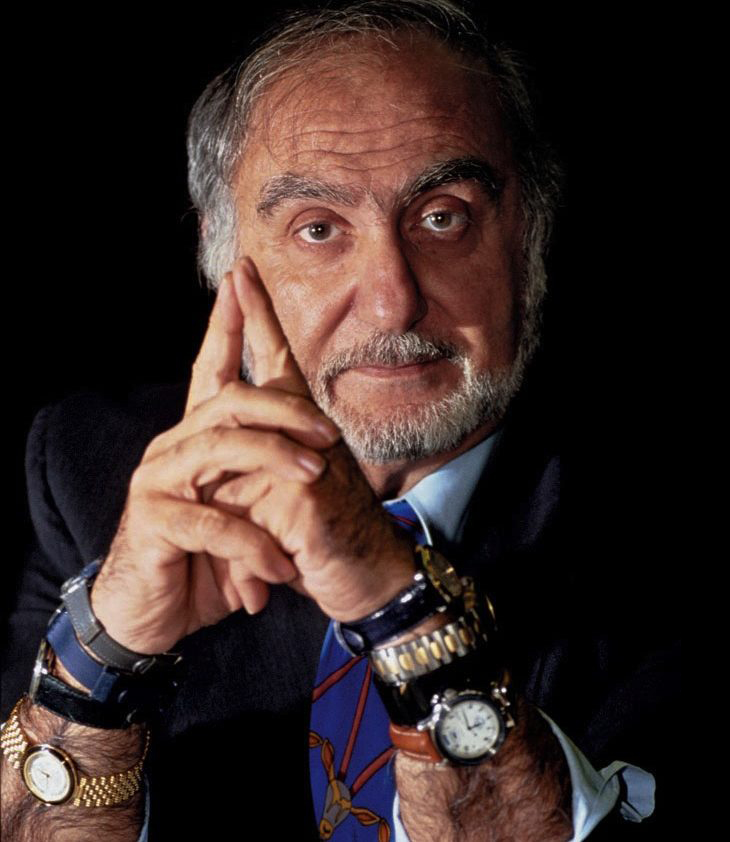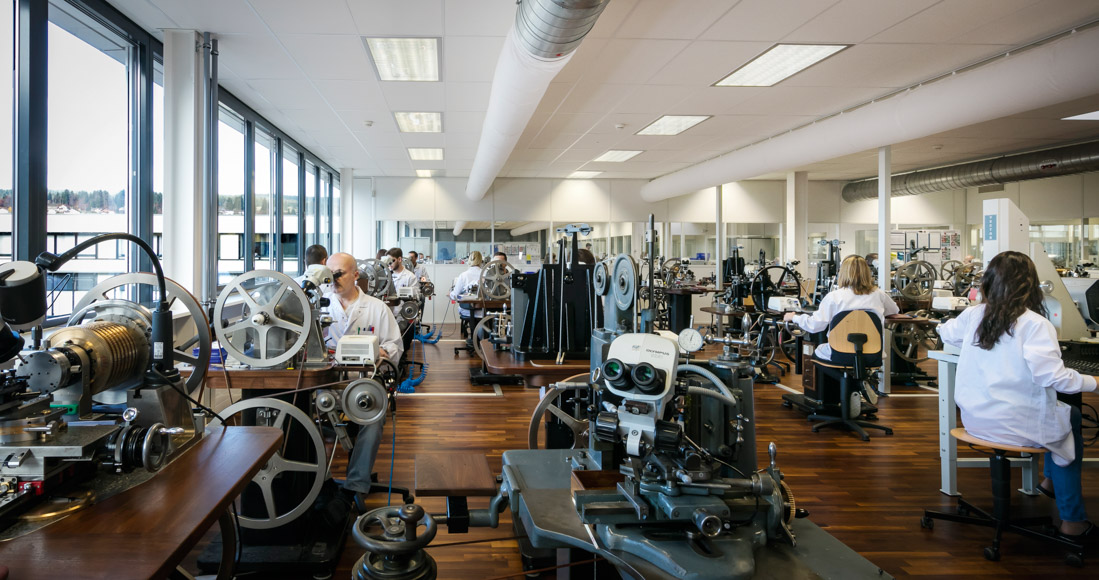
“Our cost structure today is completely different from when we created SMH. It is not merely because we are more productive. It is because we have totally changed the logic of our business system. We have radically decentralized marketing and thoroughly centralized manufacturing. There is no comparison between what exists at SMH [aka The Swatch Group] today and what existed at ASUAG and SSIH.”
As someone very interested in marketing I appreciated this quote perhaps more than any other in the article. The reason is because the current watch industry – especially when it comes to the big groups – do the exact opposite of what Hayek said should be done.
“We have radically decentralized marketing and thoroughly centralized manufacturing” is what Hayek said is what saved ASUAG and SSIH. That means brands are totally independent when it comes design, operations, marketing, advertising, etc… Where the brand should be reliant on others is a dedicated manufacturing pool that allows them to not focus on creating complicated things like watch movements.
The irony is that many brands have done just the opposite. Marketing decisions are often made or approved by detached third-part committees or group board members. With the push for in-house movements, brands have taken it upon themselves to engage in enormously redundant manufacturing. Hayek senior may very well be spinning in his grave. The reality is that the watch industry slipped into what it was good at (manufacturing) and neglected what it was bad at (communication and marketing). Hayek attempted to reserve this tendency and was relatively good at it. Since he has left and since other leaders have had their time in positions of power, so much of what Hayek figured out about how to run a watch group seems to be slowly slipping out of people’s memory.
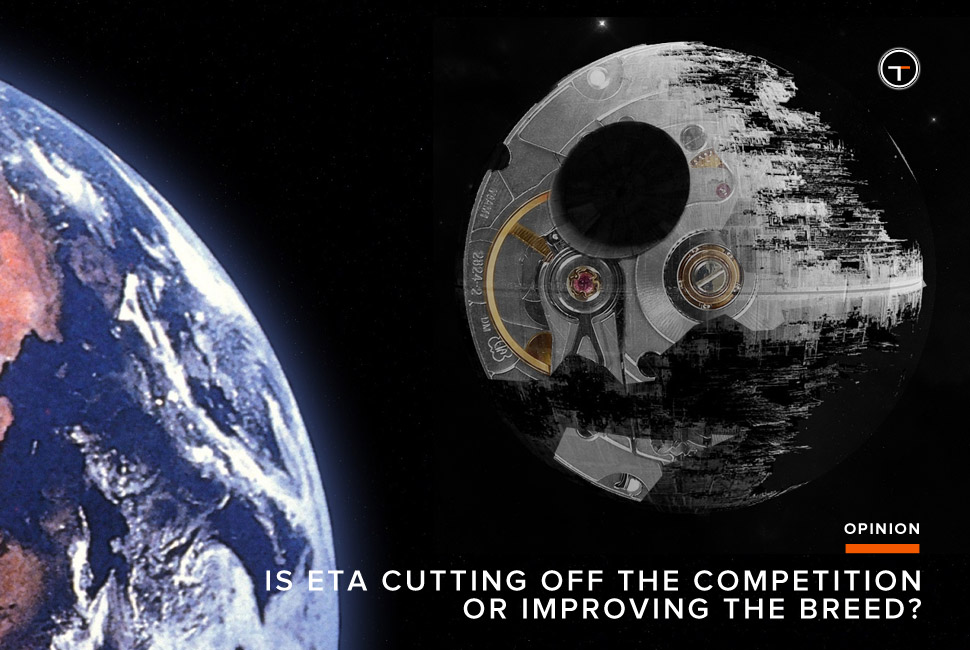
“Imagine if we got so uncompetitive in movements that we had to get out of the business altogether. And imagine if, like so many companies in other industries, we then focused on design and marketing and final assembly. And then imagine if we designed a great new model for Tissot, a watch that was going to be a big hit in the United States and hurt our rivals.
Now, what if our Japanese supplier recognized the appeal of that new model? You can imagine what might happen: “We are very sorry, but we are having capacity problems at our plant. We know we used to charge you $3.50 for that movement. It is now $12.” Well, that destroys the economics of the watch. So the next thing the supplier says, “Of course, we can make special arrangements in our plant. But we prefer to deal with partners rather than customers. We are prepared to become 50% owners of the brand and supply movements at more favorable prices.”
That sounds conspiratorial. We heard that argument about Japanese leverage in computers because they dominate flat-panel displays and power supplies. The Japanese compete fiercely among themselves, why should they conspire against European companies?”
The context here regards the notion of Switzerland losing the ability to make watch movements – and Hayek is specifically referring to ETA. He imagines a situation where a Swiss watch brand needs to buy movements from Japan, and that because of competition they are increasing prices. Oddly enough, some time after this interview Hayek’s own feeling about ETA seems to shift, and he wanted to stop selling watches to as many outside companies – effectively forcing some of them to purchase from the Japanese.
I think the message here is that Swiss watch makers need to remain competitive. It isn’t just that you “can do something,” it is that you do something the best or in a way that is particularly appealing to consumers. It seems that some watch brands simply feel that being a familiar-looking “Swiss Made” watch is enough. Hayek would have likely argued that doing so was simply not enough. How many Swiss watches today are truly competitive? What would the market look like if more Swiss watches were truly competitive?
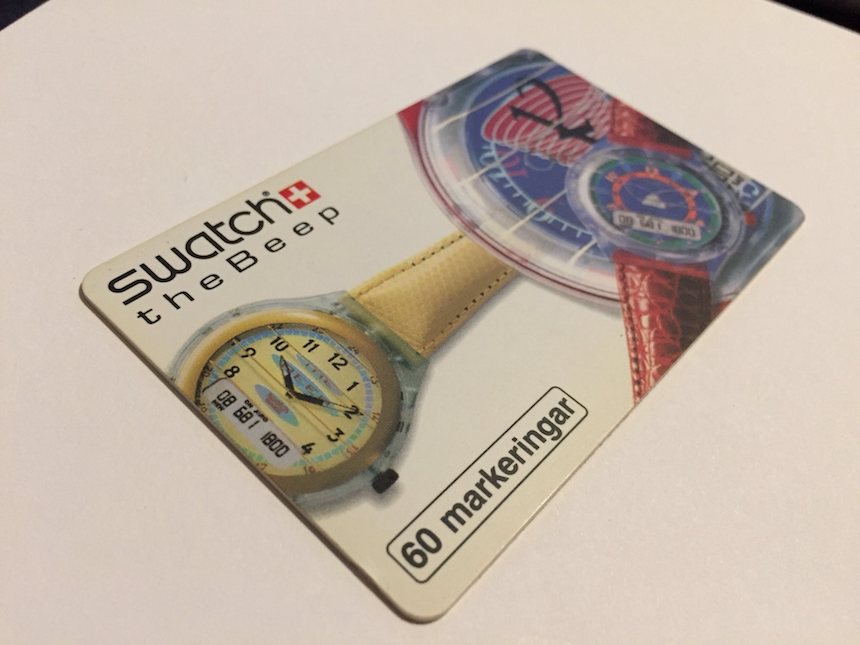
“Look at the wristwatch pagers out there today. They have digital displays. They are ugly. They are heavy. It’s no accident we will market the world’s first successful analog wristwatch pager. We have the technology. We know how to design manufacturing systems that make us competitive. We also know how to design attractive products—and how to market them.”
I mentioned above that Swatch created wrist watch pagers in the early 1990s – and apparently they weren’t too bad. Then pagers exited popularity in favor of cell phones. What would Hayek have said about today’s smartwatches and other connected devices? Many of them are ugly just as Hayek claims. I truly feel that he would have jumped aboard smartwatches and made them the Swatch group way. Swatch group did come up with the Smart car – and that was a success. All that was needed was enough dedication and effort.
Today I hear Hayek’s words (once again) spoken the most clearly through Jean-Claude Biver in the context of technology watches. Biver said rather similar things about the smartwatch industry and decided to take very large steps for TAG Heuer to produce compelling smartwatches in Switzerland. I think he is doing exactly what Hayek would have done. I also think that more managers in the watch industry need to take technology and other modern watches into account, and realized that the health of the Swiss watch industry is not merely success at the high-end, but a broad diversification of products at all price levels.
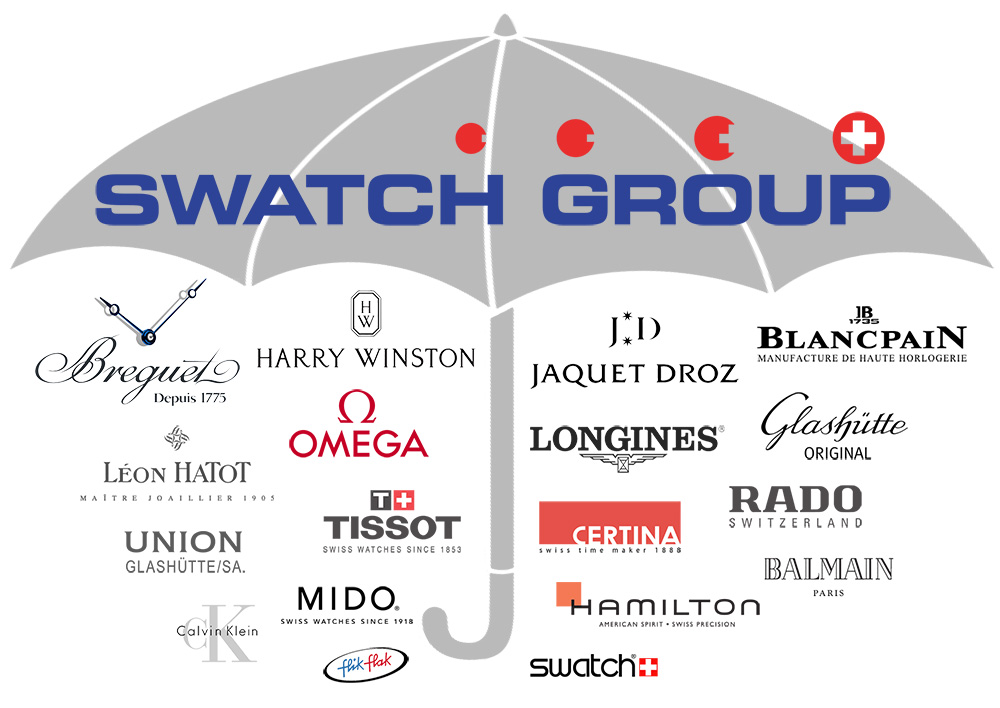
“Organizational structure is the most inhuman thing ever invented. It goes against our nature as people. So we have clear boundaries and targets. Our brands work independently of one another. The people at Omega and Rado and Tissot have their own buildings. They have their own managements. They are responsible for their own design, marketing, communications, and distribution. They are emotionally connected to their brands, not just to SMH as an entity. I want people at Rado to love Rado. And I want people at Longines to love their brand.“
I can say for sure that I’ve dealt with plenty of people at Swiss watch brands who do not love their company in the way that Mr. Hayek would have wanted them do. Those that do are the best to work with as they are zealously trying to promote the most positive elements of that brand’s current product lineup and history. What does it mean to love the brand you work for? Is it a function of corporate culture or is it related to brand image and product equity?
How does this relate to current watch industry issues? The relationship an employee has with the watch brand they work for is really important – because that sentiment is often directly translated into their work. In the watch industry today this is a challenge not because people don’t care, but because I feel that many brands aren’t sure how to care. Hayek hired people who did things, made things, and solved problems. Is the watch industry hiring for that today? Are they motivating their employees to do those things?
When viewed in the light most favorable to them, brands which have employees who “act little” often do so because a lack of direction. Here you are in a job at a company that your employer tells you is over 100 years old, and all the products you help bring to market have origin stories going back to before you were born. You are constantly told that preservation and heritage are the most important things in the world. So when it comes to being creative, do you really want to rock the boat? No, you have been trained to act more like a museum curator than an innovator. Your job is to protect and communicate the past, not to create new history. Can you see how such a job culture might be less than inspiring for creative minds and ideas?
Hayek was a fan of tradition and history for sure, but he was also an innovator that believed old companies make the best products that can last a long time. For this reason he promoted heritage, not as a means to hamper or outright prevent progress and evolution. The watch industry might very well be wise to create job cultures where taking risks is expected, trying something new is rewarded, and challenging the competition as well as your colleagues is venerated.
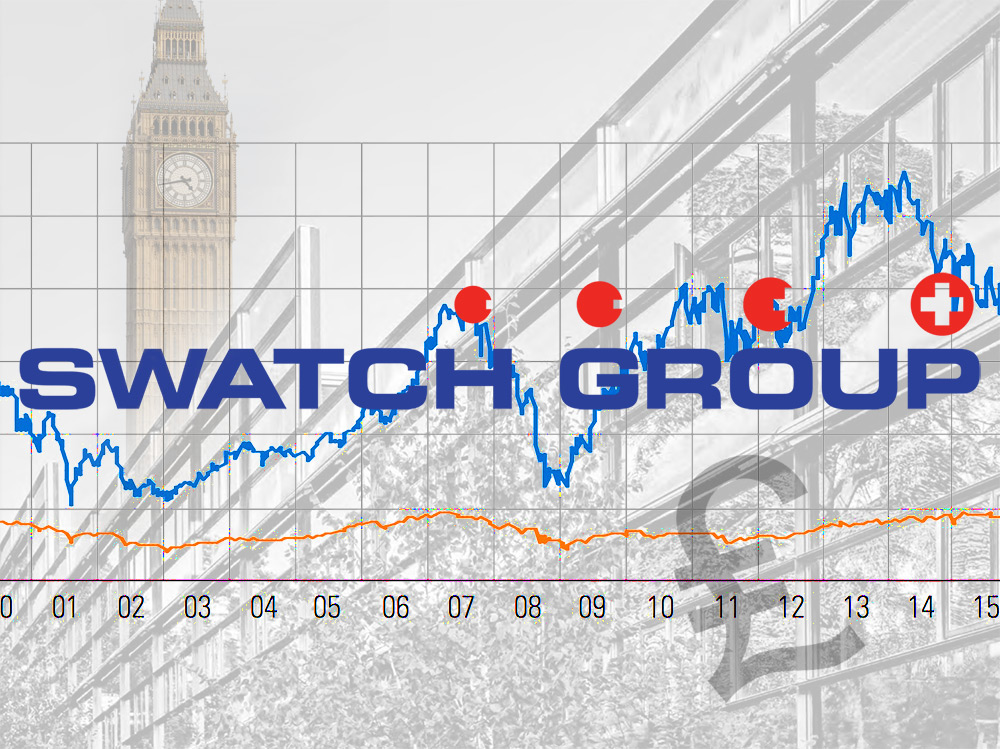
“We are big believers in decentralization. This company has 211 profit centers. We set tough, demanding budgets for them. I personally participate in detailed budget reviews for our major profit centers. Then we track performance closely. We get monthly sales figures for all profit centers on the sixth day of the following month. We get P&L statements about 10 or 15 days later. The moment anything looks strange, we react very quickly, very decisively, very directly. “
The unspoken message here is how keenly interested Hayek was in performance and that everything the Swatch Group brands were doing made sense. He wasn’t kidding, and I’ve heard plenty of corroborating evidence to suggest that he was just as active with the daily operation of budgets as he said he was – even up until his end.
One might read this and think that Hayek was compulsive and overreaching in his managerial authority. At the same time, you could appreciate that this is all extremely time consuming and he did all this to simply ensure the people around him were doing their jobs. It is unclear why, but I feel as though many people in the Swiss watch industry needed (and still need) their butts kicked in order to get stuff done. In this statement Hayek isn’t bragging so much as he is complaining a bit. He is first saying that he decentralizes teams in order to free them (or force them) to make decisions. Second, he says that despite that he needs to check them all the time in order to make sure they are making good decisions.
Hayek strongly believed in a decentralized decision making strategy, which no doubt caused issues in Switzerland where the average person is trained to come to a consensus with their neighbors before making a decision. How do these two – sometimes mutually exclusive – tendencies play together? According to Hayek it can work if you make sure people are aware (and keep reminding them) of what their mission is, and that they need to communicate results on a regular basis. This is perhaps true for all cultures, though Hayek was known to regularly point out his particular tactics on dealing with a variety of matters related to Swiss culture (remember that he was not Swiss).
Lessons for the watch industry here should be clear. There is far too much centralized decision making and too little freedom and incentive for many employees to act freely, to make decisions, or to even feel confident that taking creative risks is a good thing. I believe that the watch industry can learn a great deal from the lesson that individual departments or entities need to have the freedom as well as the responsibility to make decisions about matters related to their work and performance. This happens all too little today as many people in the watch industry are compelled to sit on their hands and wait for orders since they aren’t given much leeway for any type of decision making responsibility.
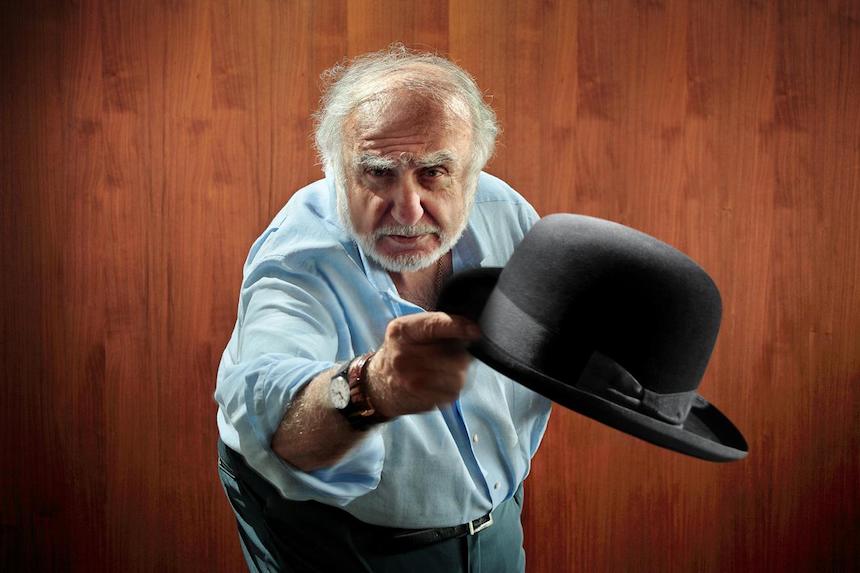
“Everything we’ve done can be done by lots of companies in Switzerland, or France, or Germany, or America. All it takes is the will to do it. Which is, I admit, no small matter. As a consultant, I had been preaching, shouting, writing for years about how European companies could compete with the Far East. At SMH, I got the chance to practice what I preached.
Second, I put my own money on the line, along with money from our investors. The fact that our group controls a majority of the equity means we could make decisions that other people were scared to make.
I inflicted pain, made controversy, created worry. Nobody believed the targets we set back in the mid-1980s. People thought we were crazy to invest SFr1.1 billion in one of the highest cost regions in the world. But it was our investment on the line. There was never any doubt who was running the show—or, for that matter, who would get blamed if we failed.”
I’ll let the above wisdom speak for itself. I once again thank Mr. Nicolas Hayek for taking countless opportunities during his life not only to do what he felt was proper, but also to speak at length about it. There might not be anyone just like Mr. Hayek Senior left in the watch industry, but perhaps the industry would be wise to ensure that there is.

